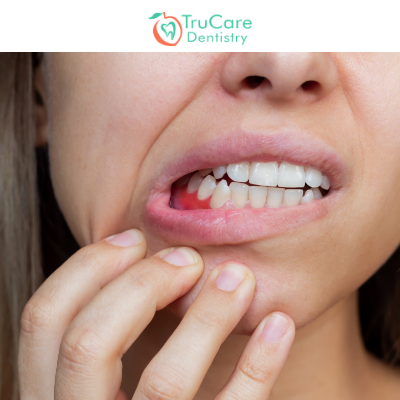
Today, a fast lifestyle is causing several oral health issues. Gum diseases like gum boils are the most common dental problems caused by poor oral hygiene. It is an infection requiring immediate medical intervention as gum boil can cause serious health issues if left unattended. Generally, this condition is more prevalent in people with existing gum diseases or those who have recently undergone dental surgery.
Let us explore gum boils, their causes, symptoms, and treatment.
What do you mean by Gum Boil?
A gum boil, dental abscess, or parulis is typically a gum tissue infection that appears like a pimple in the gum. It forms due to bacteria buildup and contains pus which feels like a bump over the gum. Usually, a gum boil area looks darker and swollen than other gum areas of your mouth.
In addition to causing swelling and redness in the affected area, gum boils can also be extremely painful. Sometimes, they can cause fever, bad breath, and a bitter aftertaste.
There are mainly two types of gum boils.
- Periapical Abscess: An infection that forms at the tooth’s root (tooth pulp) or within the tooth itself due to bacterial infection brought on by tooth decay or injury.
- Periodontal Abscess: It is a type of dental abscess that develops in the bone and gums that support the teeth and is frequently brought on by bacteria brought on by gum disease or poor oral hygiene.
What are the Symptoms of Gum Boils?
The most evident symptom of gum boil is a swollen pimple gum.
Other symptoms of gum boils include-
- Discomfort, swelling, and tenderness in the affected area
- Redness or inflammation in the gums
- Pain while biting or chewing
- Sensitivity to certain food items
- Fever and general malaise in some cases
- Bad taste in the mouth or bad breath
- Swelling of the jaw or neck’s lymph nodes
- Difficulty in swallowing or opening the mouth
Many people experience slightly varied symptoms. For instance, some people report severe pain, while some people do not experience any pain at all.
If you have any of these symptoms, consider visiting a dentist immediately because untreated gum boils can result in more severe health issues.
What Causes Gum Boils?
One of the most common causes of Gum boils is poor dental hygiene. If you do not follow dental hygiene habits like regular brushing, flossing, and rinsing the food particle buildup starts building inside the mouth. It eventually accumulates bacteria and leads to plaque. Over time, plaque can eventually harden into tartar, which can irritate the gums and cause inflammation. If left unattended, this inflammation develops gum boils.
Other causes include –
- Tooth decay
The development of gum boils may also be caused by tooth decay. The soft tissue within a tooth called the pulp can become infected by bacteria when a cavity forms in it. This infection can spread to the nearby gums and cause a gum boil.
- Trauma to the tooth
A chipped or cracked tooth can expose the pulp, increasing the risk of infection.
- Dental operations
Dental procedures, like root canals and tooth extractions, can also contribute to gum health, causing gum boils.
How to Treat Gum Boil?
Maintaining good oral hygiene is the first and most important way to treat gum disease like gum boils. Also, brushing twice daily, flossing, and rinsing your mouth are crucial for healthy gums and avoiding bacteria buildup in the mouth after each meal.
Clinical Treatment:
Using antibiotics, abscess drainage, or other treatments as necessary, a dentist or other dental expert can identify and treat gum boils.
Let us understand each in detail:
Draining the Abscess: It involves making a small incision in the gum to allow the pus to escape. Your dentist may apply local anesthesia to numb the area to make the treatment a painless experience.
Antibiotics: Your dentist may recommend antibiotics to prevent the infection from spreading to other body parts.
Pain relief: Over-the-counter painkillers like acetaminophen or ibuprofen can help reduce pain and discomfort.
Tooth extraction: If the tooth is significantly injured or cannot be saved, your dentist may advise extraction to prevent the infection from spreading.
Root canal therapy: In some circumstances, a root canal may be necessary to remove the diseased pulp and seal the tooth.
Conclusion
If you suspect a gum boil or experiencing any of the symptoms mentioned above, consider seeking immediate medical attention. It will help your dentist stop the infection from spreading and leading to other problems. Also, as per the degree of damage to your gums, your dentist will make treatment recommendations. If you still have doubts and looking for the best dentist in Roswell, GA, or nearby areas such as Sandy Springs, Marietta, Milton, Alpharetta, Dunwoody, or Woodstock, call (678) 321-7575 or check our website to book an appointment.
